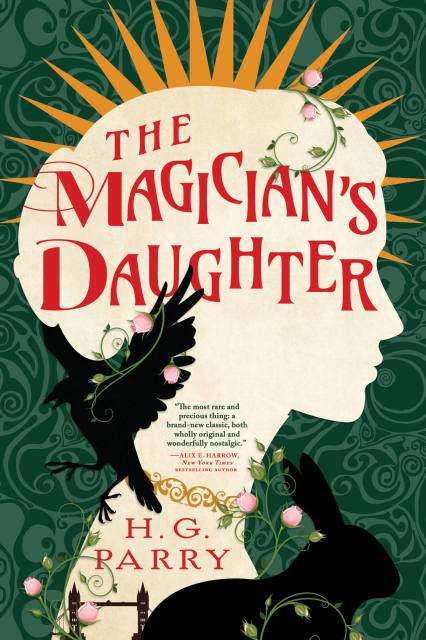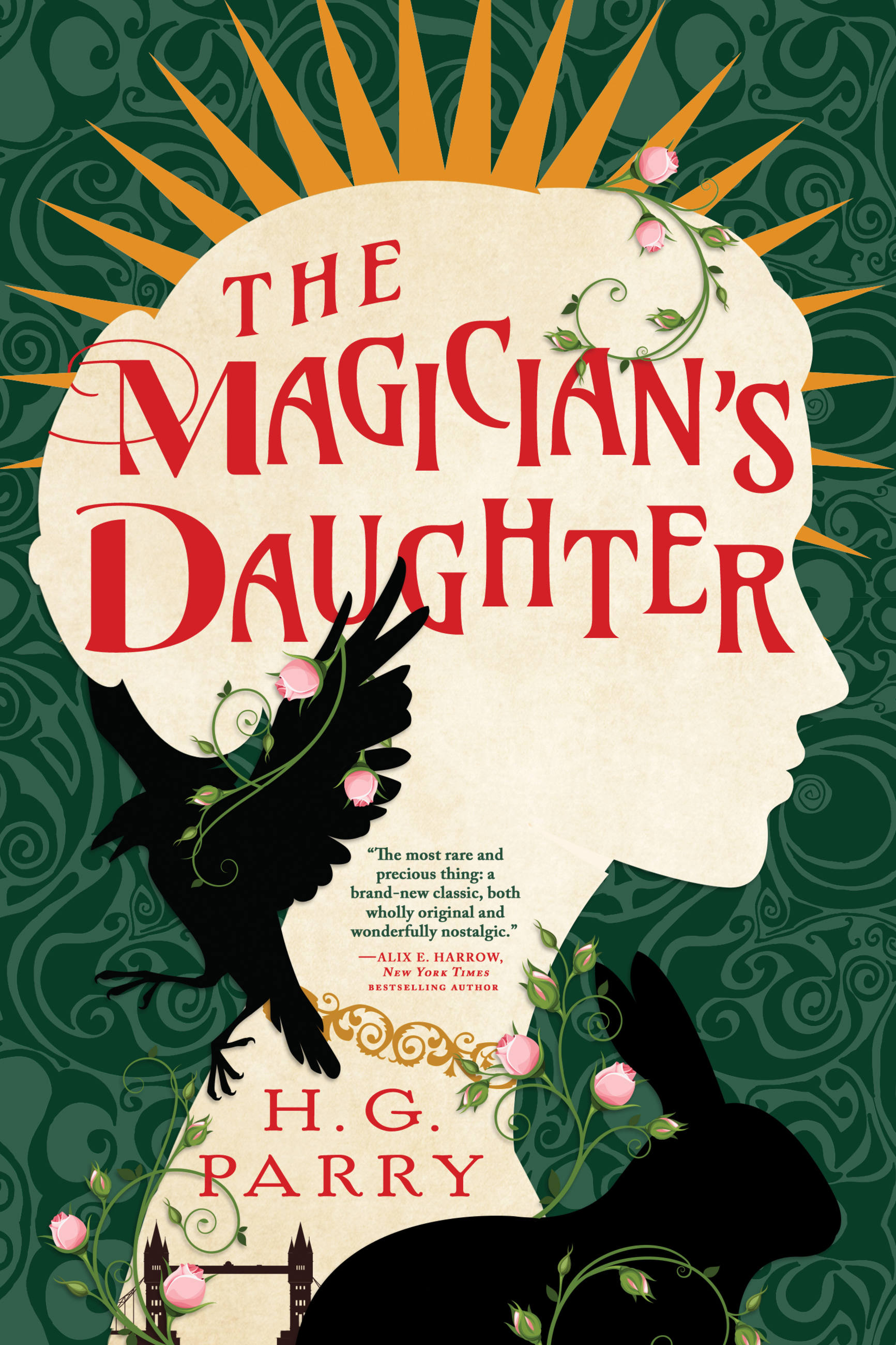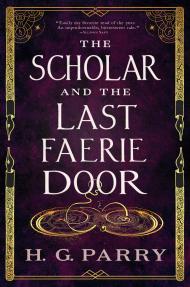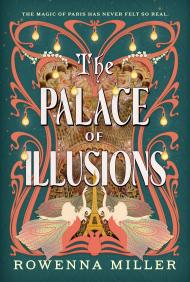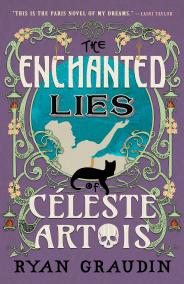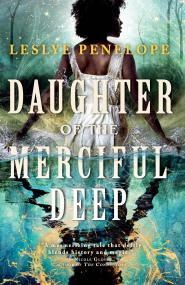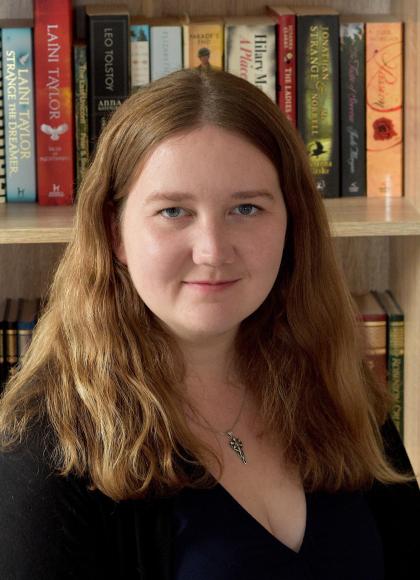By clicking “Accept,” you agree to the use of cookies and similar technologies on your device as set forth in our Cookie Policy and our Privacy Policy. Please note that certain cookies are essential for this website to function properly and do not require user consent to be deployed.
The Magician’s Daughter
Contributors
By H. G. Parry
Formats and Prices
- On Sale
- Feb 28, 2023
- Page Count
- 400 pages
- Publisher
- Redhook
- ISBN-13
- 9780316383707
Price
$19.99Price
$25.99 CADFormat
Format:
- Trade Paperback $19.99 $25.99 CAD
- ebook $9.99 $12.99 CAD
- Audiobook Download (Unabridged) $31.99
This item is a preorder. Your payment method will be charged immediately, and the product is expected to ship on or around February 28, 2023. This date is subject to change due to shipping delays beyond our control.
Buy from Other Retailers:
“That most rare and precious thing: a brand-new classic, both wholly original and wonderfully nostalgic.” —Alix E. Harrow, New York Times bestselling author
In the early 1900s, a young woman is caught between two worlds in H. G. Parry’s cozy tale of magic, miracles, and an adventure of a lifetime.
One night, Rowan fails to return from his mysterious travels. To find him, Biddy must venture into the outside world for the first time. But Rowan has powerful enemies—forces who have hoarded the world’s magic and have set their sights on the magician’s many secrets.
Biddy may be the key to stopping them. Yet the closer she gets to answers, the more she questions everything she’s ever believed about Rowan, her past, and the nature of magic itself.
Praise for The Magician’s Daughter
“Brilliantly imagined. Parry blends mythic elements with wit and heart.” —Lucy Holland
“A charming romp of an old-school coming of age fantasy about family and magic that will take your heart for a wild ride.” ―NPR
For more from H. G. Parry, check out:
The Unlikely Escape of Uriah Heep
The Shadow Histories
A Declaration of the Rights of Magicians
A Radical Act of Free Magic
Genre:
-
"The Magician's Daughter is that most rare and precious thing: a brand-new classic, both wholly original and wonderfully nostalgic. It's an absolute treasure."Alix E. Harrow, author of The Ten Thousand Doors of January
-
"[D]elightful and whimsical...Another gem of a novel from a talented writer."Kirkus
-
"Brilliantly-imagined. I love the way Parry blends mythic elements with wit and heart. A fast pace, period detail and an intriguing cast of real, flawed people make The Magician's Daughter a book to be absolutely devoured."Lucy Holland, author of Sistersong
-
"The Magician's Daughter is innovative fairy tale and deftly researched historical fiction in one, full of captivating magic and richly drawn characters. HG Parry crafts an evocative world rife with a struggle for equity, justice, and the occasional miracle that readers won't be able to forget."Rowenna Miller, author of Torn
-
"A compelling journey into a world of fading myth and mystery, evoking the magic of Jonathan Strange & Mr Norrell by way of The Dark is Rising. The old magic runs deep in H. G. Parry's veins. The Magician's Daughter is a true delight."Cameron Johnston, author of The Maleficent Seven
-
"Draws you in and makes you believe that magic does exist. Animal familiars, an island that only appears on certain days, and a young heroine who learns the depths of her strength. I absolutely adored it!"Andrea Stewart, author of The Bone Shard Daughter
-
"The Magician's Daughter casts a spell with its warm and subtle prose. Parry has created an enchantment of a novel―a coming-of-age story teeming with magic, with characters striving to change an unjust world―this is a book to be savoured."E. J. Beaton, author of The Councillor
-
"[F]illed with heartbreak and wonder. Highly recommended for fans of heroine's journeys, steampunk alternate worlds, and stories about what happens after the magic goes away."Library Journal
-
"Parry continues her hot streak of well-researched historical fantasy with this mix of bildungsroman and love letter to the 19th-century English canon...The magic system—which posits magic as a nonrenewable resource—works wonderfully as a metaphor for capitalism after 19th-century industrialization. Parry’s fans will not be disappointed."Publishers Weekly
-
"Parry has written another winning fantasy novel full of adventure, found family, and magic. This is a fully realized world that feels like a homage to the classic fantasy tales of Diana Wynne Jones...For readers who love a great fantasy adventure."Booklist
-
"Beautifully crafted...Even devotees of fantasy’s darker corners will take solace in The Magician’s Daughter, a little paean to storybook endings and happily ever afters."BookPage
-
"The Magician’s Daughter is a delightful little fantasy that pulls at all the right heartstrings...For those who fondly remember the works of Frances Hodgson Burnett or Lewis Carroll, this novel will definitely be your (bread, butter and) jam."Wall Street Journal
-
"The Magician’s Daughter is a splendid piece of writing...If you’re looking for something to recapture some magic in your life, something that touches the bit inside all of us that dreams impossible dreams, then I can’t recommend this book enough."Lightspeed
-
"A charming romp of an old-school coming of age fantasy about family and magic that will take your heart for a wild ride."NPR
-
"A gorgeously atmospheric coming-of-age novel...The Magician's Daughter is a triumph of skill and technique. [Biddy's] story is a journey of discovery, a coming-of-age into a wider world that leaps off the page in vivid, heart-rending detail."Locus
-
"H.G. Parry pairs gorgeous writing with rich characters and folklore in this stand-alone historical fantasy full of adventure and heart."Observer
Newsletter Signup
By clicking ‘Sign Up,’ I acknowledge that I have read and agree to Hachette Book Group’s Privacy Policy and Terms of Use
